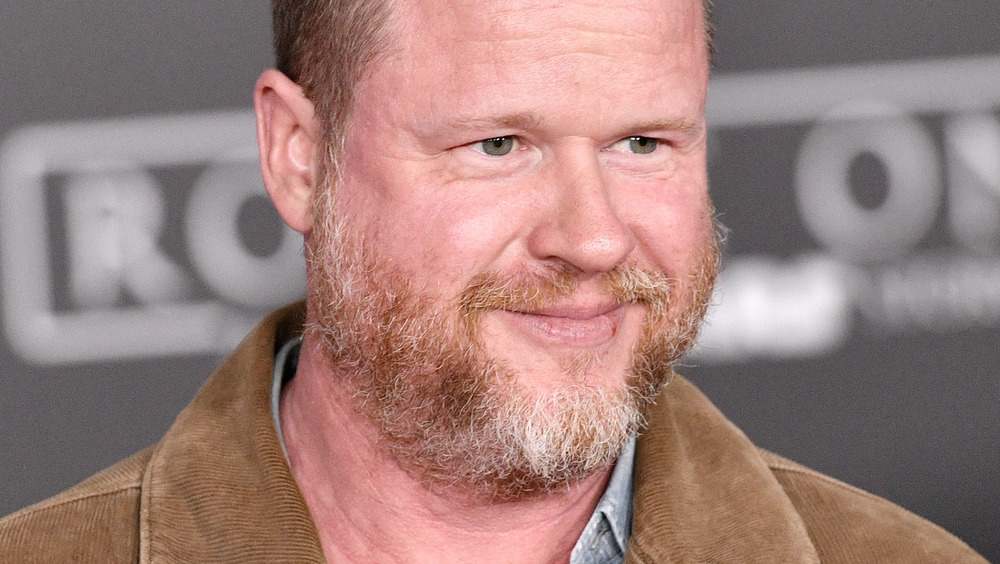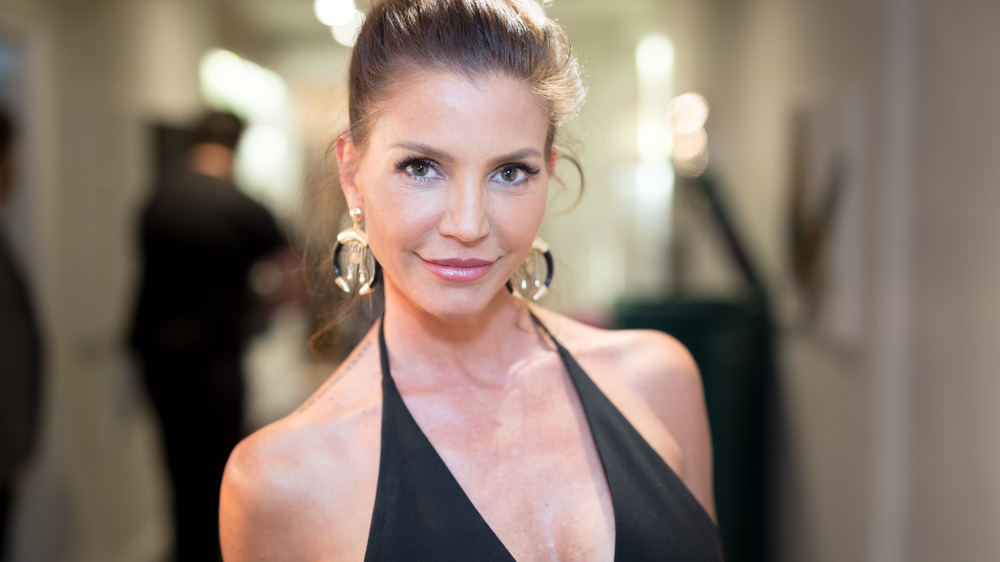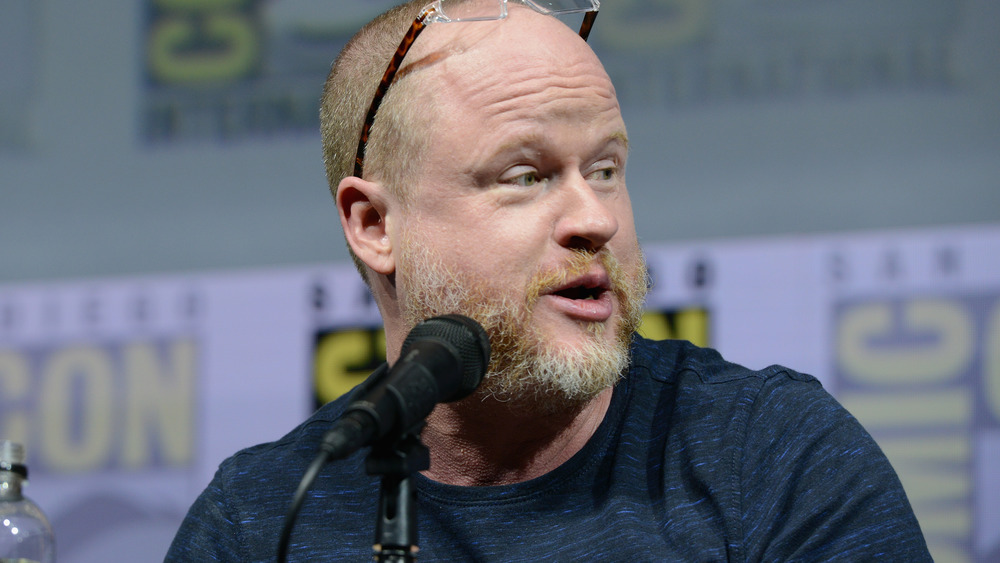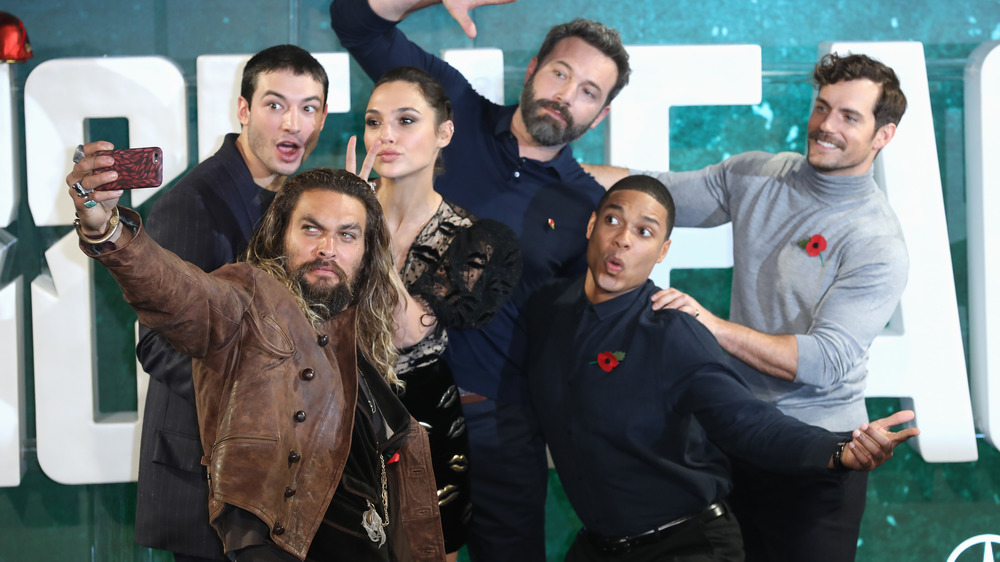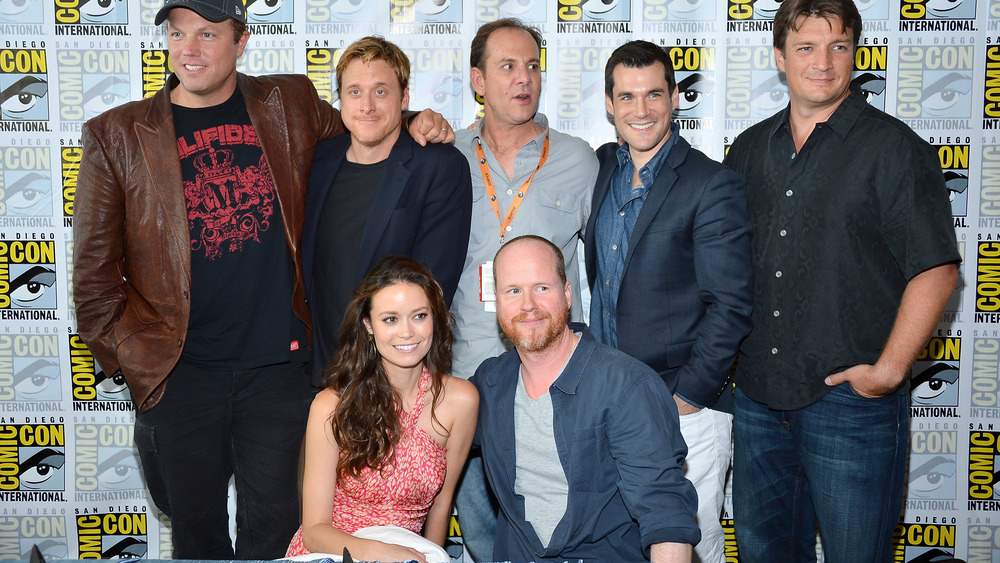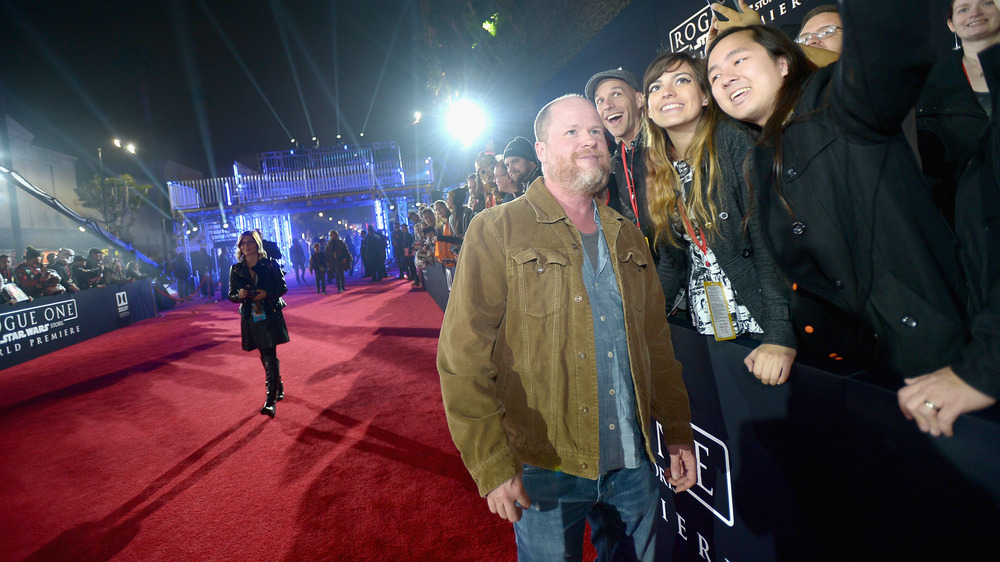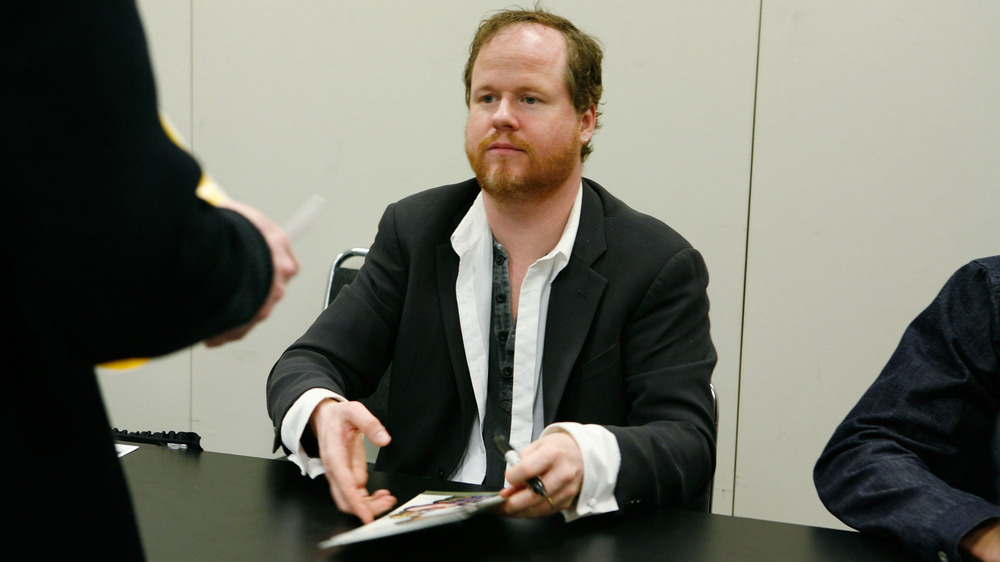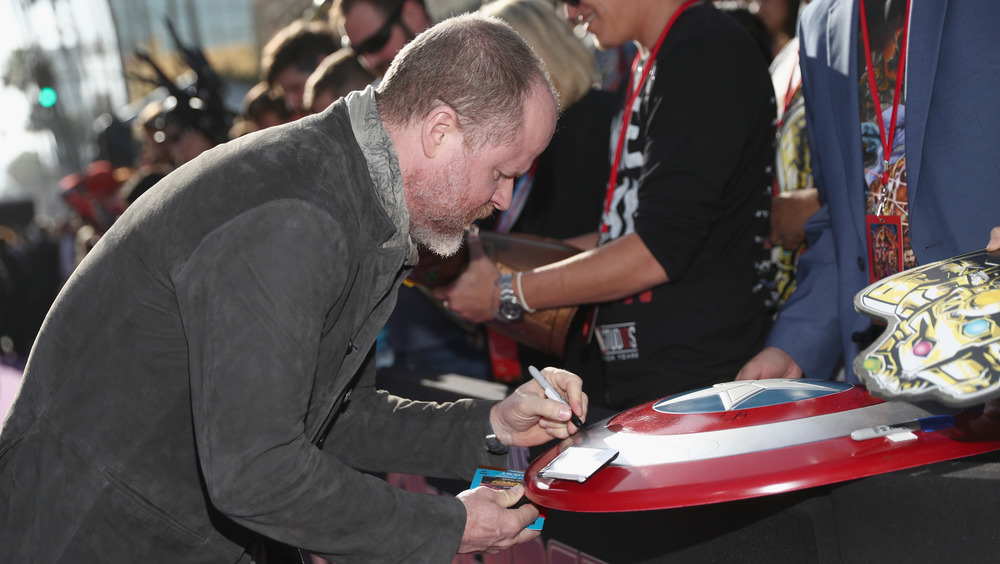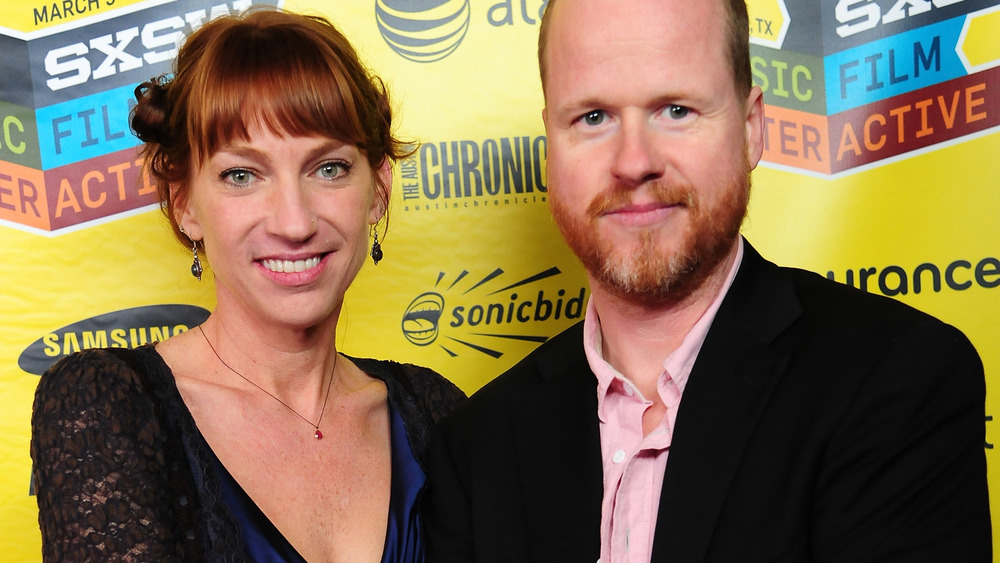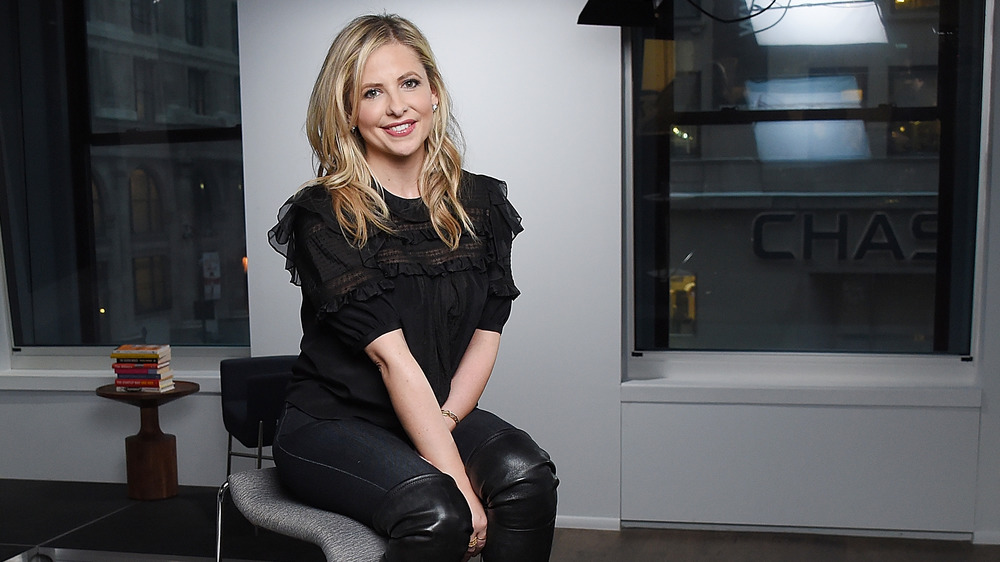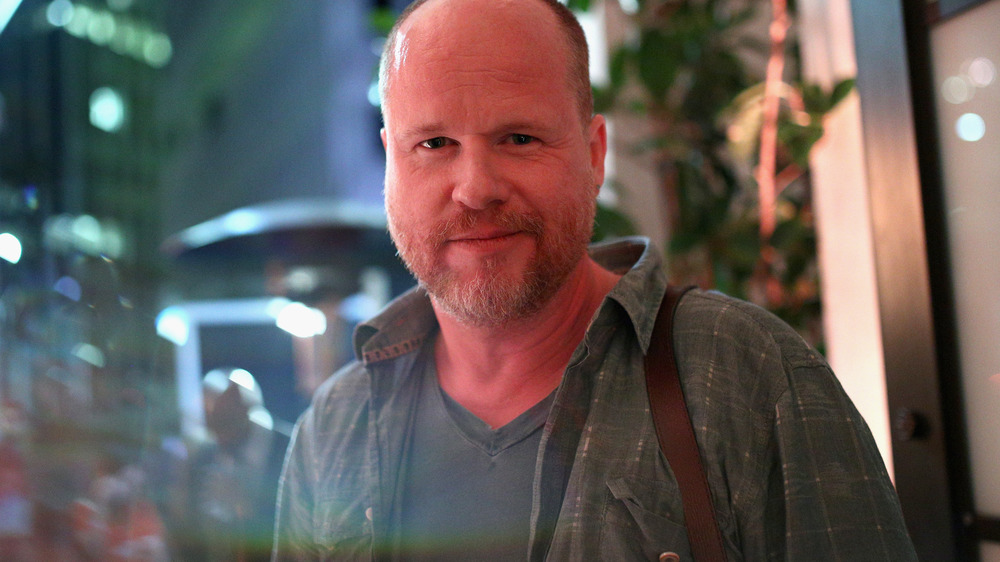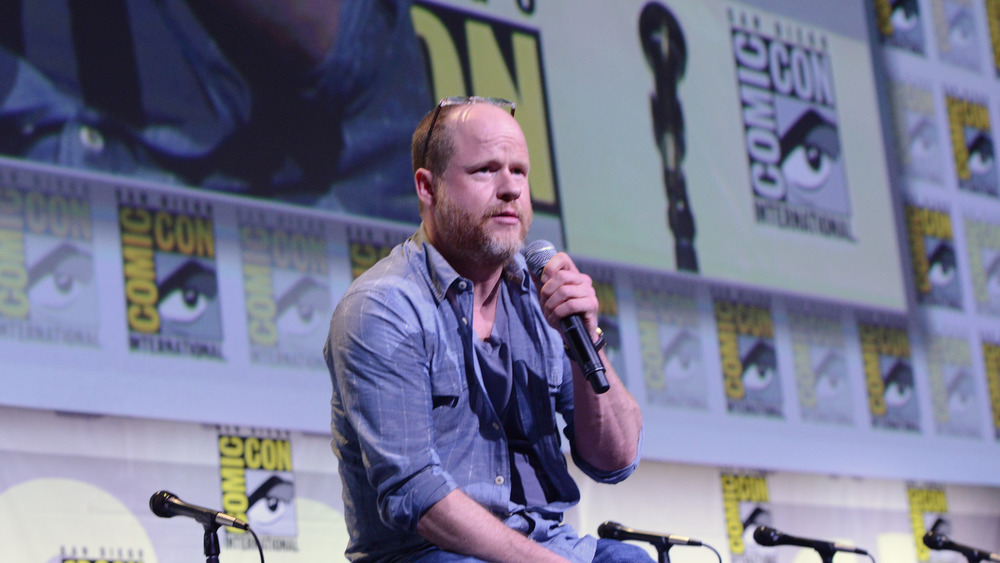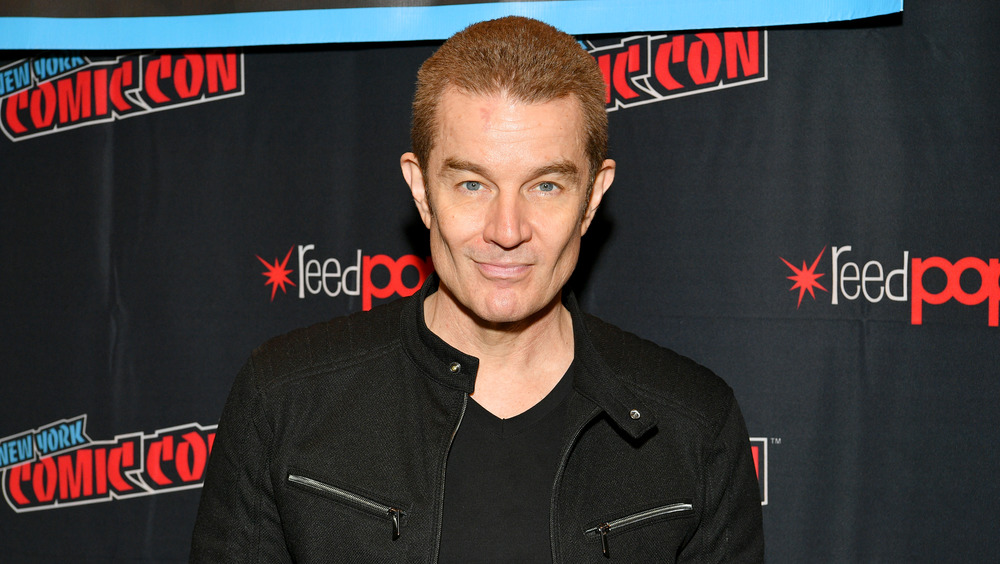The Shady Truth About Joss Whedon
At a glance, it seems like Joss Whedon's one of those guys that has it all. He's an incredibly talented writer, director, and producer, and he's been behind some of the biggest pop culture juggernauts in recent Hollywood history. From the gone-too-soon Firefly (a moment of silence, please) to Buffy the Vampire Slayer right up to Agents of S.H.I.E.L.D. and Avengers: Age of Ultron, it seems like anything he's involved in goes gold... or at least gets a cult following. (#firefly, #YouCan'tTakeTheSkyFromMe, #gonetoosoon).
Unfortunately, it also seems as though Whedon has a dark side. Over the course of years, cast and crew members who worked on the shows and movies he's helmed have come out with some horrible accusations that range from promoting a toxic work environment to racism, abuse of power, and misconduct.
Hollywood is a place where abuses of power are the norm, going all the way back throughout the history of cinema. Go back just a short time, and accusations would simply get swept under the rug. That's not the case anymore, and now, people — like Marilyn Manson — are being held accountable. Let's take a look back at all the accusations that have been leveled at Joss Whedon in recent years.
Charisma Carpenter's statement about the abusive set of Buffy
On February 10, 2021, former Buffy star Charisma Carpenter posted a lengthy message on Twitter, saying that after almost 20 years of silence, she had been inspired by other actors who had previously spoken out against Joss Whedon and the atmosphere of abuse reportedly cultivated on numerous sets.
She said (in part): "He was mean and biting, disparaging about others openly, and often played favorites, pitting people against one another to complete and vie for his attention and approval. ... He proceeded to attack my character, mock my religious beliefs, accuse me of sabotaging the show, and then unceremoniously fired me the following season once I gave birth." She went on to say that after she had become pregnant, Whedon repeatedly called her fat, scheduled her for grueling, middle-of-the-night hours that put her under so much stress she went into false labor, and ridiculed her for taking comfort in her faith through a trying time.
Carpenter talked about how she "felt powerless and alone," and condemned Hollywood's tendency to "vilify the victims and glorify the abusers," saying the recent Time's Up movement gave her the courage to come forward. After her statement, fellow Buffy alumni Sarah Michelle Gellar, Amber Benson, Clare Kramer, Eliza Dushku, and Michelle Trachtenberg came out in support of her, with the latter saying there was an unwritten rule regarding Whedon: "He's not allowed in a room alone with Michelle again."
The birth of Joss Whedon, the 'egomanic'
Back in summer of 2020, two Buffy alumni spoke to Metro regarding their experiences working with Joss Whedon. Sophia Crawford — who was Sarah Michelle Gellar's stunt double — and stunt coordinator Jeff Pruitt hit it off while filming, and started dating. (At the time their accusations went public, they were married.) They alleged that Whedon not only insisted that they break up if they wanted to keep working on Buffy, but had Pruitt's home computer keylogged. (That, says McAfee, involves the installation of software or spyware that records every keystroke made on a particular computer.) That accusation was reportedly backed up by a producer who had come forward to say that yes, every email Pruitt sent while working on Buffy had also gone straight to Whedon.
Pruitt claimed that some of the on-screen drama had been directly inspired by the relationships and conflicts going on behind the camera, and added that it hadn't always been like that. "We had a great relationship, Joss and I, but he changed as the show took off. He went from the humble writer [to] a real egomaniac who believed his own hype."
Disagreements and conflicts on set only escalated, said both Pruitt and Crawford, until they finally left the show after four seasons. Pruitt further says that Whedon had repeatedly threatened them — saying they would never work again — and that there were multiple times where he had secured a job, only to have it get mysteriously cancelled.
Ray Fisher's accusations against Joss Whedon sparked an investigation
In July 2020, Justice League's Ray Fisher posted a short and to-the-point tweet that accused Joss Whedon of "on-set treatment of the cast and crew of Justice League [that] was gross, abusive, unprofessional, and completely unacceptable." According to Variety, Fisher originally left it at that. The powers-that-be at Warner Bros. first said that he was simply upset at some of the things he'd been asked to do as Cyborg, but fast forward to December, and The Hollywood Reporter said that WarnerMedia had investigated Fisher's claims of abuse on-set, and "remedial action has been taken."
That's super vague, and while it was never clear just what actions had been taken, Whedon did announce that he was stepping down from the show he'd been working on, The Nevers. He claimed it was because he was "genuinely exhausted," and wanted to "martial my energy towards my own life," but it seems as though there was more there than went public.
According to ScreenRant, it wasn't just Fisher who spoke out against Whedon. Jason Momoa (Aquaman) also came out and said he, too, had been the target of mistreatment. In an expletive-laden Instagram post, he wrote (in part): "Serious stuff went down. It needs to be investigated and people need to be held accountable."
Joss Whedon and racism
Several months after Ray Fisher's tweet about the abuse that happened on the set of Justice League, he talked to Forbes and got a little more specific and claimed the cast had been instructed to laud Joss Whedon and his decisions over Zack Snyder, who he replaced. (CinemaBlend says that Snyder stepped away after the death of his daughter.)
Fisher later retracted his statements on how great Whedon's version was, and then he went on to issue another damning allegation: whitewashing. Fisher said that he had become aware of "racist conversations" in which characters of color — Cyborg's parents (Joe Morton and Karen Bryson), Ryan Choi (Zheng Kai), and Iris West (Kiersey Clemons) — were completely cut or had their screen time drastically reduced by Whedon's team. Fisher also alleged that "Joss had ordered the complexion of an actor of color be changed in post-production because he didn't like the color of their skin tone."
That isn't the only time Whedon has been accused of racial insensitivity. When SyFy took a look back at Firefly, they pointed out that although the entire backstory involves a world where China and America partner up to create the Anglo-Sino Alliance, there are no main (or even background) characters of Chinese heritage. Set, clothing, and even cursing is heavily influenced by Chinese aesthetics, the population of Firefly's world is 50 percent Chinese, but they say "the complete lack of actual Asian characters in Firefly is negligent at best, racist at worst."
Joss Whedon's reportedly trash talking his predecessors
When Ray Fisher tweeted his allegations of abusive behavior and misconduct on the set of Justice League, he was pretty vague about just what had happened. ScreenRant says that's likely because the cast and crew had all signed non-disclosure agreements (NDAs) and were unable to get into those details for legal reasons. However, there was one outsider who got a glimpse behind the scenes and had enough clout that when he publicly spoke about what he'd heard, people took notice.
That was Kevin Smith, who had gotten an inside scoop when he visited Star Wars: The Rise of Skywalker during filming. Smith said (via ScreenRant) that some of the special effects crew had also worked on Justice League, and cited Joss Whedon's relentless trash-talking of predecessor Zack Snyder as one of the major sources of strife on the project.
While they stress that this was second-hand information and should be viewed as such, it's not completely unsubstantiated. In addition to Fisher's Forbes interview where he said he and the other cast members were given specific talking points to address how great Whedon and his vision were, there's also Whedon's reaction to the release of Snyder's Justice League cut. While fans petitioned with #ReleaseTheSnyderCut, Whedon responded with his own hashtag: #ReleaseTheSnyderDaguerreotype, which ScreenRant notes wasn't just a reference to an old, Victorian-era photography process, but it was a bit of snark that fans weren't happy with.
Joss Whedon's Wonder Woman script was packed full of misogyny
Wonder Woman was a smash hit when it was finally released, and that's kind of overshadowed the fact that Joss Whedon had started working on a script for a Wonder Woman film back in 2005. His original script was leaked in 2017, and what followed was a backlash felt all the way in Themyscira.
Highlights include referring to Diana as "impossibly strong and scantily clad" as well as "curvaceous, but taut," along with dialogue that used some less-than-politically correct expletives for women. There are also scenes where she dances to distract the male baddies, gets tied up and screams about how she submits, and has what the Huffington Post described as an "awfully racist and stereotypical portrayal of a 'gangster'-type villain." And the main character? Steve Trevor.
It was up in the air for a bit as to whether or not the script was the real thing, but in 2018, IndieWire reports that Whedon came out to defend it. He said (in part): "I don't know which parts people didn't like, but I went and re-read the script after I heard there was a backlash. I think it's great. People say that it's not woke enough. I think they're not looking at the big picture."
Making Black Widow a 'monster'
Marvel has been called out on what Vox describes as a "gender problem," and Black Widow was an exception to the rule... until, the extreme backlash suggests, Joss Whedon got involved. There are a few scenes that audiences and critics have pointed to as being particularly problematic in the Whedon-run Avengers: Age of Ultron. First, there's the fact that Black Widow is largely reduced to Bruce Banner's unrequited love interest and the Avengers' bartender. She is repeatedly portrayed as a character who's only there as a weird mother-girlfriend combo, and it's a relationship that ScreenRant notes was so bad the MCU decided to hit the figurative reset button on the whole thing.
Then, there's the awkwardly awful way that her backstory is presented. After sharing the story of her training as an assassin, she says this: "They sterilize you. It's efficient. One less thing to worry about, the one thing that might matter more than a mission. It makes everything easier — even killing. You still think you're the only monster on the team?"
The outrage hit hard: hearing a woman allowing herself to be defined by her reproductive abilities — and calling herself a "monster" after revealing she couldn't have kids — came off as insanely tone-deaf. Whedon deleted his Twitter not long after, and the AV Club says it wasn't until much later that he came back to defend the line, saying she was talking about being an assassin... in spite of how the scene played out.
Joss Whedon's ex-wife has condemned his version of feminism
In 2017, Joss Whedon's ex-wife Kai Cole published a guest piece on The Wrap — and she didn't hold back.
Cole was with Whedon through the Buffy years, and said that at first, she accepted the fact that he just had a lot of female friends — in part because of his feminism. But friendships, she claimed, turned into repeated affairs that he blamed on what he described as the "beautiful, needy, aggressive young women," he was surrounded by on the set. He wrote to her: "In many ways I was the HEIGHT of normal, in this culture. We're taught to be providers and companions and at the same time, to conquer and acquire — specifically sexually — and I was pulling off both!" Cole went on to say that "he used his relationship with me as a shield," so inappropriate behavior was less likely to be questioned. It went on for 15 years before he confessed to her, and she said: "I was broken."
They ended up getting a divorce, and Cole says she was diagnosed with PTSD. She finished: "I want to let women know that he is not who he pretends to be. I want the people who worship him to know he is human, ... a man who does not practice what he preaches."
Whedon declined to comment.
Joss Whedon's representation of strong female characters only goes so far
Joss Whedon had been hailed as a feminist icon for so long that it's easy to not actually look too closely at some of his most famous characters: the women who spend most of their time kicking ass and taking names. But some critics have found that taking an in-depth look at some of them presents some major problems.
The Mary Sue points out that for many of his so-called strong female characters, that strength is restricted to being able to fight... and not much else. They point out that Buffy turns into a weak-kneed mess whenever one of her relationships goes sideways, and other characters — like Cordelia — are regularly shamed and ridiculed by male characters. That's a dynamic that repeats itself in Firefly, with the "strong" Inara being constantly shamed for her profession... in spite of the fact it's regularly lauded as being pretty noble. Then, there's Kaylee — who's defined by her obsession with Simon — and River, who's subject to violent mood swings and completely dependent on her brother for literally everything aside from fighting.
Then, The Mary Sue also takes aim at Dollhouse, which they say "perfectly embodies Whedon's love of male fists in female faces." Far from being a strong character, Eliza Dushku's Echo is not only beholden to all-male overseers and clients, but exists as "the ultimate male fantasy." They conclude: "Is Whedon a paragon of feminist virtue?"
His weird speech on why he doesn't like the word 'feminist'
Joss Whedon loves to talk about how much of a feminist he is, and not everyone thinks he gets it right. The Atlantic looked at a speech he gave at Equality Now, and he spent a long time breaking down the word "feminist," then condemning the "-ist" part. He went on to claim "you can't be born an -ist," and continued by saying that equality is the natural state of things, inequality is born of society, and therefore, he doesn't like the term "feminist."
But, The Atlantic argued, sexism and discrimination feels "natural" to many people, and ignoring that is starting down a dangerous path. They write: "Saying equality is natural sounds like a good thing, but Whedon uses it rhetorically to ignore the entire history of feminism."
Ultimately, that brings up the question of whether or not a white man should be defining what he does and doesn't like about feminism, right down to the very word. Some find that incredibly problematic.
Joss Whedon's portrayal of gay characters has cone under scrutiny
When io9 reported on the death of a major character in The 100, they said the show "pulled a Whedon," and that wasn't meant to be a compliment. It was essentially condemning the show for copying a death that had already happened in Buffy: a lesbian character taking a bullet for her love interest and dying in a way they deemed "lazy."
They're not the only ones that think Joss Whedon's treatment of gay characters hasn't been the best. Marti Noxon was a writer-turned-showrunner for the sixth season of Buffy, and when she talked to Vulture about how her controversial season went, she had some serious regrets. She said that contrary to what it looked like on paper, Whedon absolutely didn't take the back seat on Buffy's darkest season. She said: "We pushed too far into some categories that almost felt sadistic, ... And I think that killing Tara was — in retrospect, of all the people, did she have to die?"
Into looked back at how Whedon had treated Buffy's characters, and it wasn't great. In spite of a promising start where both Willow and Tara were shown as having a deep, real relationship, they found it absolutely doesn't hold up. Whedon later went on record as saying Tara needed to die so Willow could continue on her story arc, and sacrificing a major, lesbian character so she could become a plot point for someone else just isn't cool.
He lost his mind a little over Spike's popularity
In 2016, Vanity Fair was still talking about the legitimacy of shipping Buffy and Spike, and according to what Joss Whedon told Complex, that's something he could totally get on board with. He said: "I'm a Buffy/Spike shipper. ... Buffy/Angel is for the ages; Buffy/Spike is maybe for me."
At a glance, that's kind of all right... but there's two other little bits of information that make it super weird — starting with the fact that he seems to have forgotten that time that Spike tried to rape Buffy, and that's absolutely not the sort of thing a romantic relationship should be founded on.
And according to Spike himself, James Marsters, Whedon wasn't always Team Spike. In fact, he outright resented Spike's popularity. He recalled (via Comic Book): "I came along and I wasn't designed to be a romantic character, but then the audience reacted that way to it. And I remember he backed me up against a wall one day, and he was just like, 'I don't care how popular you are, kid, you're dead. You hear me? Dead. Dead!' And I was just like, 'Uh, you know, it's your football, man. OK.'" Marsters went on to say that he definitely wasn't kidding and he never apologized for the outburst.
